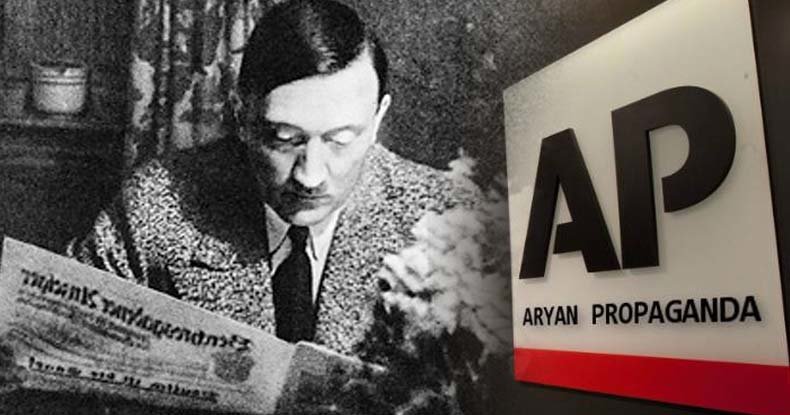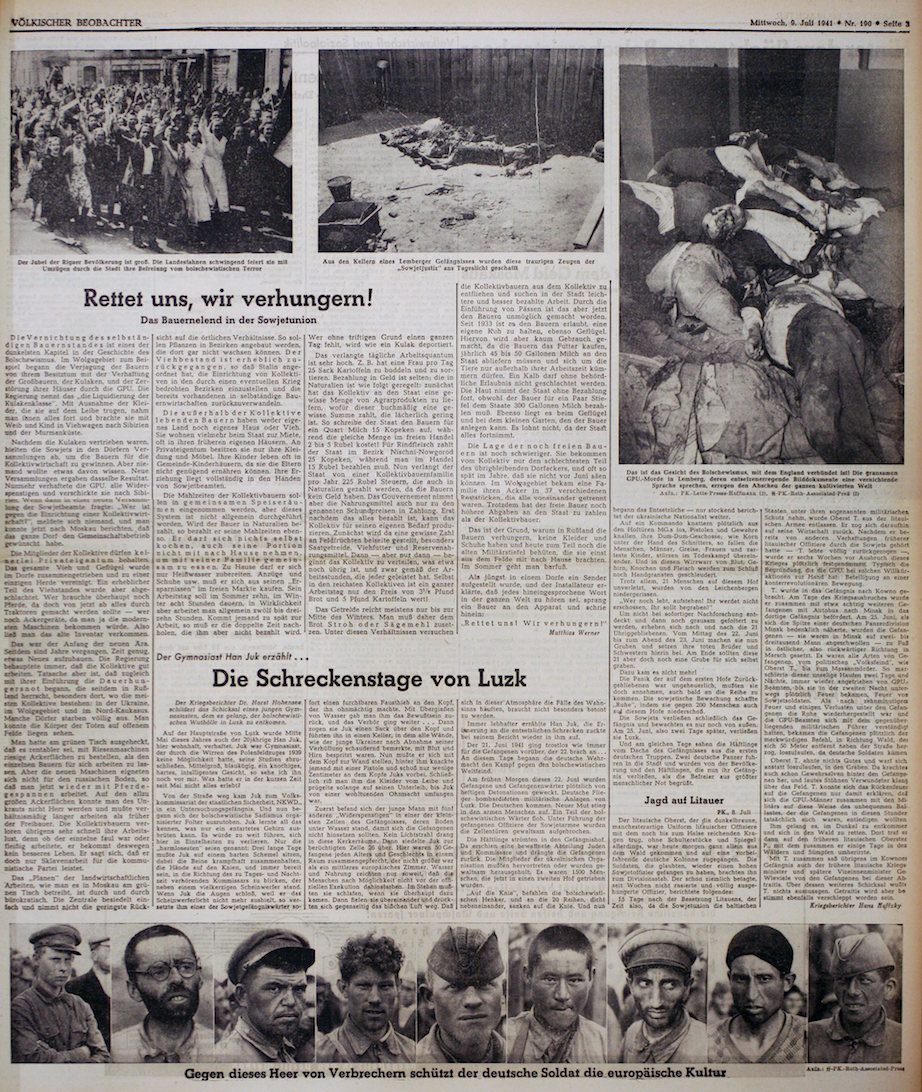After the Nazi party came to power in 1933, they began a campaign of strict image control, which encompassed the banning of almost all international media within Germany. By 1935 most media outlets were forced to close their German bureaus after persistent persecution due to their continued employment of Jews within their agencies.
The New York-based AP was the only international media outlet that was able to maintain operations under the Nazi regime, continuing to operate until the U.S. entered World War II in 1941. This created a paradigm in which the AP became virtually the sole hub of information about Nazi Germany being disseminated to the rest of the world.
Harriet Scharnberg, a historian at Halle's Martin Luther University, recently published her findings on the AP/Nazi complicity in the academic journal 'Studies in Contemporary History'. In the journal, she reveals that the AP's cooperation with the Nazis allowed the regime to "portray a war of extermination as a conventional war".
To operate within the Nazi state, media was forced to submit to the so-called Schriftleitergesetz (editor's law), which required media to publish nothing "calculated to weaken the strength of the Reich abroad or at home".
According to a report in The Guardian:
This law required AP to hire reporters who also worked for the Nazi party's propaganda division. One of the four photographers employed by the Associated Press in the 1930s, Franz Roth, was a member of the SS paramilitary unit's propaganda division, whose photographs were personally chosen by Hitler. AP has removed Roth's pictures from its website since Scharnberg published her findings, though thumbnails remain viewable due to "software issues".While this agreement allowed the Western world to have a semblance of access to the secretive Nazi regime, it also obscured the reality of totalitarian regime from the rest of the world - allowing for the easier consolidation of power for the Nazi party.
AP also allowed the Nazi regime to use its photo archives for its virulently antisemitic propaganda literature. Publications illustrated with AP photographs include the bestselling SS brochure "Der Untermensch" ("The Sub-Human") and the booklet "The Jews in the USA", which aimed to demonstrate the decadence of Jewish Americans with a picture of New York mayor Fiorello LaGuardia eating from a buffet with his hands.
In response to these allegations an AP spokesman told The Guardian:
"As we continue to research this matter, AP rejects any notion that it deliberately 'collaborated' with the Nazi regime. An accurate characterisation is that the AP and other foreign news organisations were subjected to intense pressure from the Nazi regime from the year of Hitler's coming to power in 1932 until the AP's expulsion from Germany in 1941. AP management resisted the pressure while working to gather accurate, vital and objective news in a dark and dangerous time."Ironically, similar arrangements are clearly still in operation today, as the AP has come under fire for their current relationship with the North Korean government after they opened the first Western news agency in the repressive state in January 2012.
According to a report in The Guardian:
In 2014, Washington-based website NK News alleged that top executives at AP had in 2011 "agreed to distribute state-produced North Korean propaganda through the AP name" in order to gain access to the highly profitable market of distributing picture material out of the totalitarian state. The Democratic People's Republic of Korea comes second from bottom in the current World Press Freedom Index.A spokesperson for AP has denied the claim that the agency allows itself to be censored.
A leaked draft agreement showed that AP was apparently willing to let the Korean Central News Agency (KCNA) handpick one text and one photo journalist from its agitation and propaganda unit to work in its bureau. AP told the Guardian that "it would be presumptuous to assume 'the draft' has any significance", but declined to disclose further information on the final agreement.
Significant events, reported in the international media, were not covered by AP's Pyongyang bureau, such as the six-week public disappearance of North Korean leader Kim Jong-un in September and October 2014, the November 2014 Sony Entertainment hack that had allegedly been orchestrated by a North Korean cyberwarfare agency, or a reports of a famine in South Hwanghae province in 2012.
"We do not run stories by the Korean Central News Agency or any government official before we publish them. At the same time, officials are free to grant or deny access or interviews."The media clearly has a vested interest in crafting a narrative that allows for continued access. In exchange for access to reclusive regimes, the AP has allowed these regimes to craft the image of them that is subsequently transmitted to the rest of the world — however disingenuous that reality may be.
The former AP correspondent who published the leaked draft agreement, Nate Thayer, told the Guardian:
"It looks like AP have learned very little from their own history. To claim, as the agency does, that North Korea does not control their output, is ludicrous. There is naturally an argument that any access to secretive states is important. But at the end of the day it matters whether you tell your readers that what you are reporting is based on independent and neutral sources".While AP may deny they collaborated with the Nazis or North Korean government, the evidence of collusion with these parties is unmistakable. The reality is that much of what is propagated in the media is done so with a specific intent meant to drive a chosen narrative.
Jay Syrmopoulos is a political analyst, free thinker, researcher, and ardent opponent of authoritarianism. He is currently a graduate student at University of Denver pursuing a masters in Global Affairs.





Comment: Navigating the news - Or how to cut through media lies